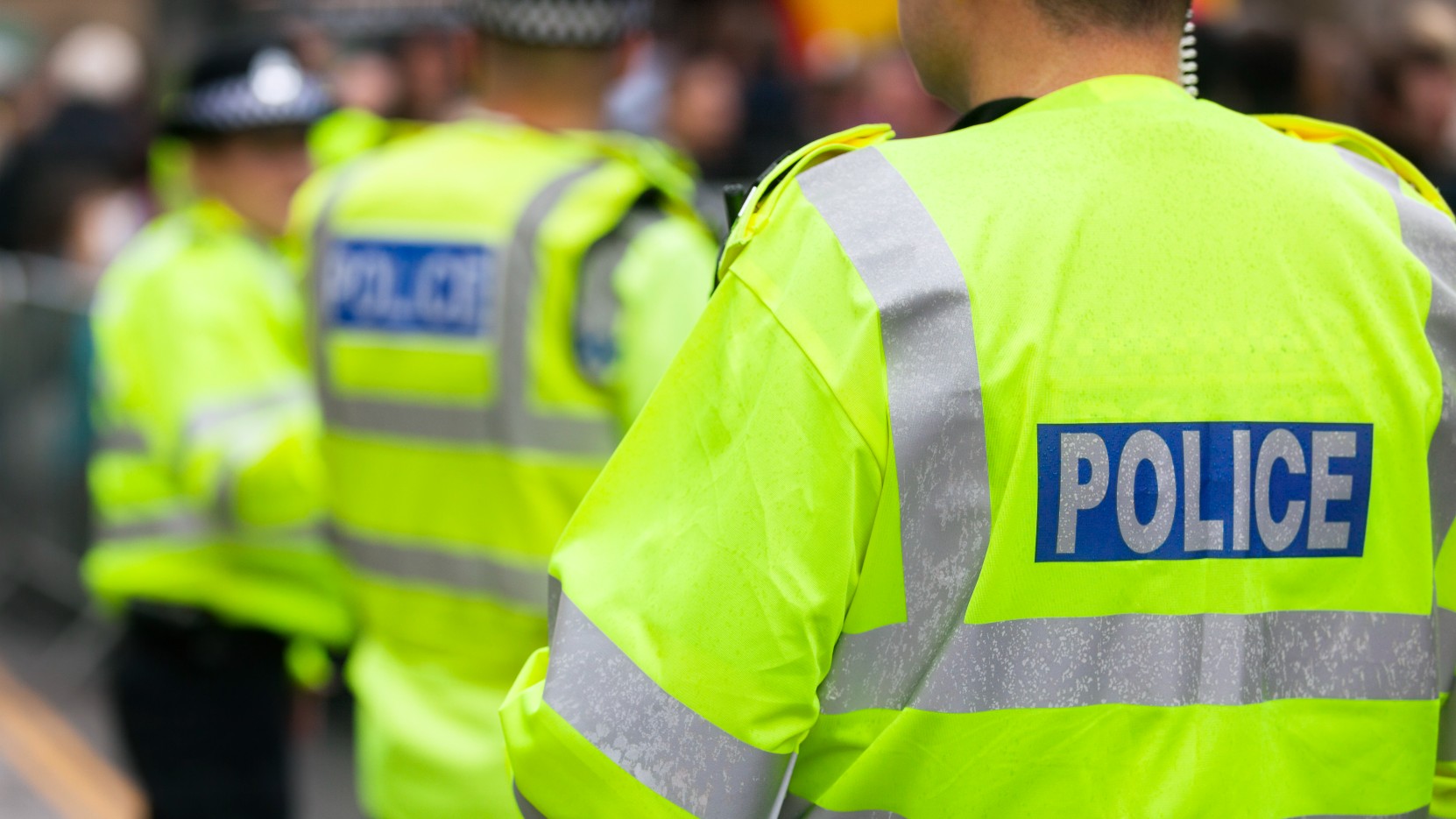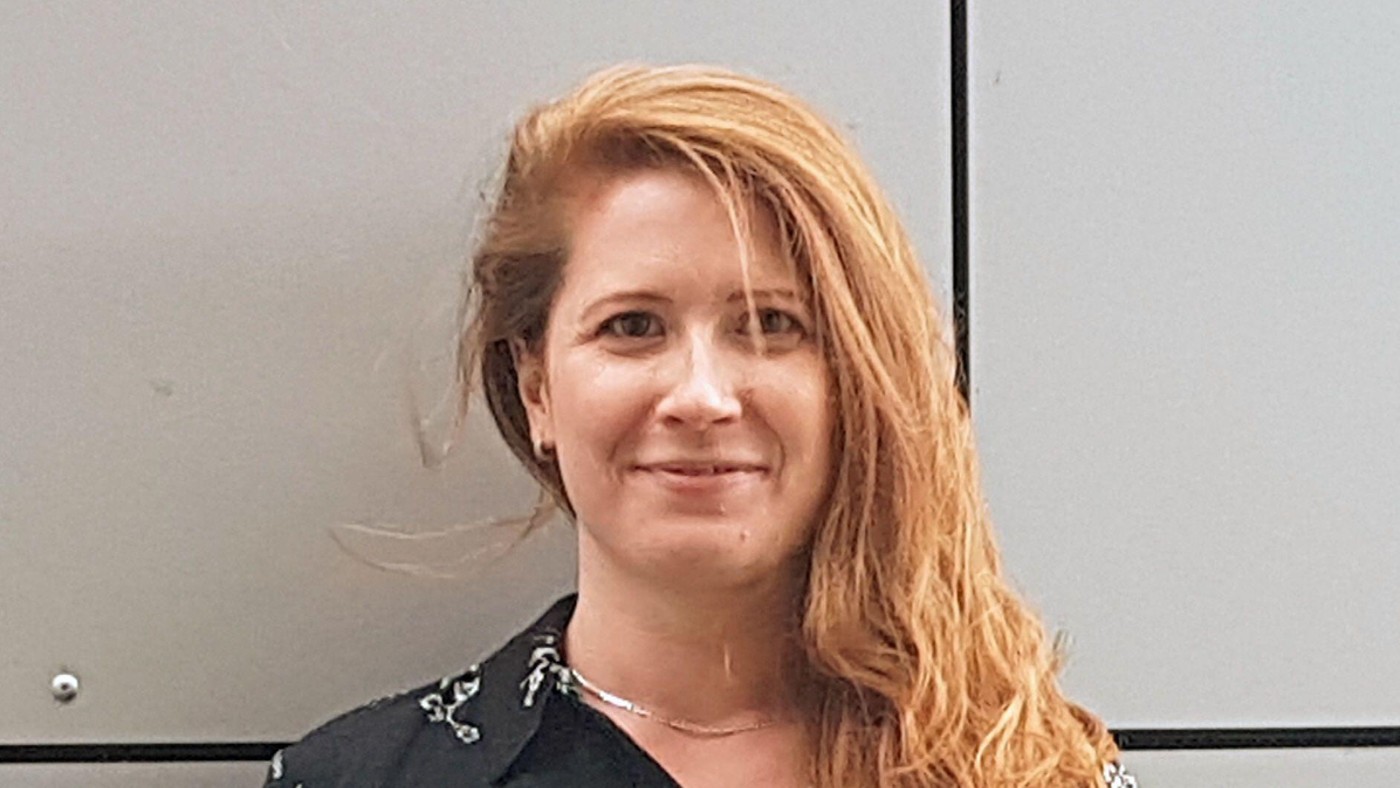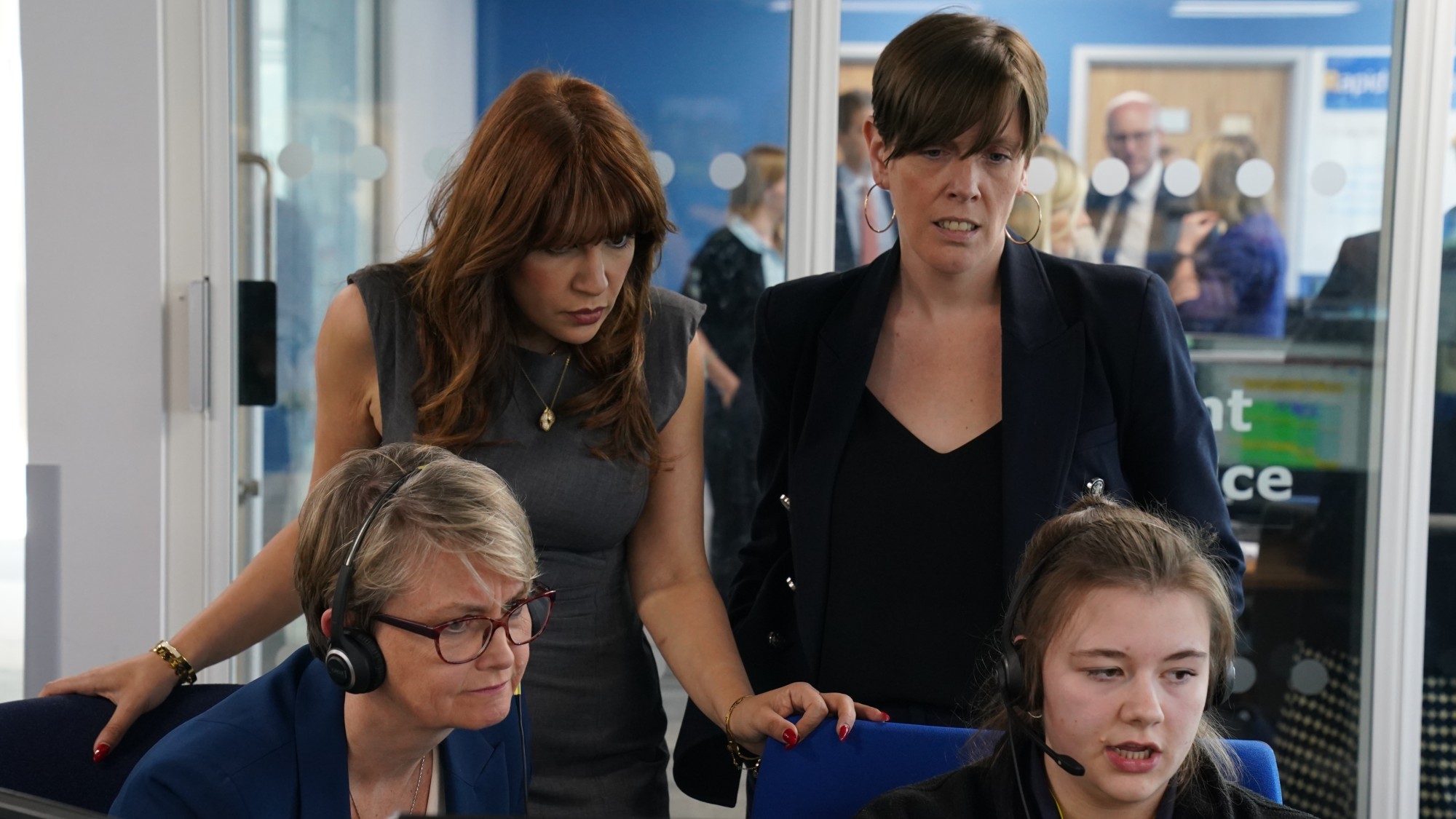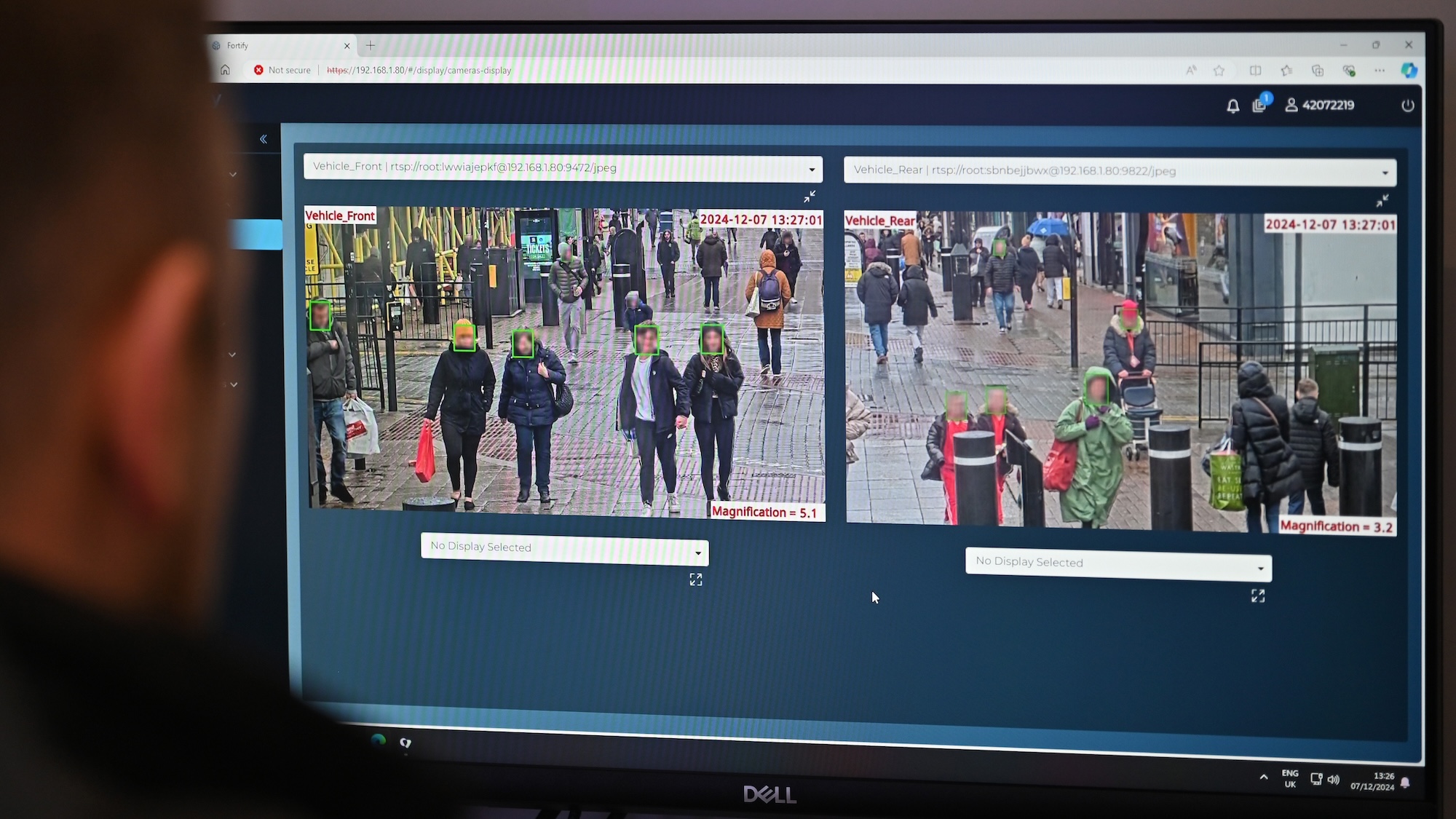The law on police strip searches
Scotland Yard forced to apologise after leaving 15-year-old girl traumatised at school

A free daily email with the biggest news stories of the day – and the best features from TheWeek.com
You are now subscribed
Your newsletter sign-up was successful
The Metropolitan Police is in the spotlight again following the news that officers strip-searched a black 15-year-old girl without an appropriate adult present, leaving her deeply traumatised.
The teenager, known only as Child Q, was pulled out of an exam she was sitting at her school in Hackney, east London, after she was wrongly suspected of carrying cannabis. Two female officers forced her to remove her sanitary pad and expose her intimate body parts.
After finding no drugs, they asked her to go back into the exam “without any teacher asking her about how she felt knowing what she had just gone through”, said her mother during an interview. She wasn’t even allowed to go to the bathroom to clean herself and had to reapply the same dirty sanitary pad to her underwear.
The Week
Escape your echo chamber. Get the facts behind the news, plus analysis from multiple perspectives.

Sign up for The Week's Free Newsletters
From our morning news briefing to a weekly Good News Newsletter, get the best of The Week delivered directly to your inbox.
From our morning news briefing to a weekly Good News Newsletter, get the best of The Week delivered directly to your inbox.
The law on strip searches
The government says that a police officer can only stop and search someone if they have “reasonable grounds” to suspect that person is carrying illegal drugs, a weapon, stolen property or something that could be used to commit a crime.
An officer can ask the person in question to take off their coat, jacket or gloves or anything they are wearing for religious reasons, “for example a veil or turban”. The latter must be done out of public view. If the officer wants the person to remove “more than a jacket and gloves”, then they must be the same sex as the person under suspicion.
A strip-search can only be conducted if an officer has a specific reason to search further and this must take place in a private area, such as a police station. It can only be carried out by an officer of the same sex, without anyone of the opposite sex present, and there must be at least two people in the room other than the detainee, “except in cases of urgency”.
Under the Police and Criminal Evidence (Pace) Act 1984, an “intimate search” – a physical examination rather than visual – should only be carried out by a registered medical practitioner or registered nurse, “unless an officer of at least inspector rank considers this is not practicable”. If that is the case, having a non-medical professional conduct a strip-search “must only be considered as a last resort”, the code states.
A free daily email with the biggest news stories of the day – and the best features from TheWeek.com
The rules for children
Children aged 17 and under need to have an appropriate adult present if they are to be strip-searched, except in urgent cases where there is risk of harm or if a juvenile has specifically stated that they don’t want an appropriate adult there. However, this decision must be recorded and signed by an appropriate adult.
The City & Hackney Safeguarding Children Partnership (CHSCP), which covers the area where Child Q was searched, states that 25 children under the age of 18 were subjected to “further searches” by officers between 2020 and 2021 – “further searches” meaning strip-searches. Of the 25 children, 19 were male and handcuffed during the process.
Nothing was found during 22 (88%) of the searches and 20 (80%) had an outcome of “no further action recorded”. In terms of ethnicity, 15 (60%) of the children searched were black, two were white, six were Asian and two were Arab or North African.
In 2016, the BBC reported that more than 5,000 children in England and Wales had been strip-searched between 2013 and 2015, and that more than 4,000 of those searches had been carried out by the Met Police.
The BBC asked all 45 police forces in the UK for their strip-search figures, but just 13 responded with the information.
‘From happy go lucky to timid recluse’
In the damning report by the CHSCP, Child Q’s maternal aunt said she had seen her niece change “from a happy go lucky girl to a timid recluse that hardly speaks to me”. She also said that the girl is “now self-harming and requires therapy”.
The teenager said she felt so negatively impacted by the incident, which took place in late 2020, that she has wanted “to scream, shout, cry or just give up” every day since.
The report found that racism “whether deliberate or not” was “likely” to have played a part in the officers’ decision to undertake the strip search. Writing for The Guardian, Diane Abbott, Labour MP for Hackney North and Stoke Newington, said the incident showed that “black schoolgirls are not safe from police abuse, even at school, supposedly a place of safety”.
According to The Guardian, three Met officers were placed under investigation by the police watchdog over the incident in 2020, but remain on full duties.
‘Should never have happened’
The Met has apologised and said the strip search “should never have happened”, while Hackney Council’s mayor and deputy mayor have requested a report “in six to nine months” on progress made following the findings of the report, said the BBC.
This apology comes just two months after the Met Police publicly apologised for the verbal abuse of an academic during a strip search almost a decade ago that she claims left her with multiple injuries and post-traumatic stress disorder.
The force admitted that officers used “sexist, derogatory and unacceptable language” about Dr Konstancja Duff following her arrest for obstruction in May 2013. Duff said she had “intrusive thoughts about the strip search [which] often brought on panic attacks” for months afterwards.

Kate Samuelson is The Week's former newsletter editor. She was also a regular guest on award-winning podcast The Week Unwrapped. Kate's career as a journalist began on the MailOnline graduate training scheme, which involved stints as a reporter at the South West News Service's office in Cambridge and the Liverpool Echo. She moved from MailOnline to Time magazine's satellite office in London, where she covered current affairs and culture for both the print mag and website. Before joining The Week, Kate worked at ActionAid UK, where she led the planning and delivery of all content gathering trips, from Bangladesh to Brazil. She is passionate about women's rights and using her skills as a journalist to highlight underrepresented communities. Alongside her staff roles, Kate has written for various magazines and newspapers including Stylist, Metro.co.uk, The Guardian and the i news site. She is also the founder and editor of Cheapskate London, an award-winning weekly newsletter that curates the best free events with the aim of making the capital more accessible.
-
 House votes to end Trump’s Canada tariffs
House votes to end Trump’s Canada tariffsSpeed Read Six Republicans joined with Democrats to repeal the president’s tariffs
-
 Bondi, Democrats clash over Epstein in hearing
Bondi, Democrats clash over Epstein in hearingSpeed Read Attorney General Pam Bondi ignored survivors of convicted sex offender Jeffrey Epstein and demanded that Democrats apologize to Trump
-
 Are Big Tech firms the new tobacco companies?
Are Big Tech firms the new tobacco companies?Today’s Big Question Trial will determine if Meta, YouTube designed addictive products
-
 Why have homicide rates reportedly plummeted in the last year?
Why have homicide rates reportedly plummeted in the last year?Today’s Big Question There could be more to the story than politics
-
 How the ‘British FBI’ will work
How the ‘British FBI’ will workThe Explainer New National Police Service to focus on fighting terrorism, fraud and organised crime, freeing up local forces to tackle everyday offences
-
 ‘Stakeknife’: MI5’s man inside the IRA
‘Stakeknife’: MI5’s man inside the IRAThe Explainer Freddie Scappaticci, implicated in 14 murders and 15 abductions during the Troubles, ‘probably cost more lives than he saved’, investigation claims
-
 3 officers killed in Pennsylvania shooting
3 officers killed in Pennsylvania shootingSpeed Read Police did not share the identities of the officers or the slain suspect, nor the motive or the focus of the still-active investigation
-
 Christian Brückner: why prime suspect in Madeleine McCann case can refuse Met interview
Christian Brückner: why prime suspect in Madeleine McCann case can refuse Met interviewThe Explainer International letter of request rejected by 49-year-old convicted rapist as he prepares to walk free
-
 Dash: the UK's 'flawed' domestic violence tool
Dash: the UK's 'flawed' domestic violence toolThe Explainer Risk-assessment checklist relied on by police and social services deemed unfit for frontline use
-
 The ethics behind facial recognition vans and policing
The ethics behind facial recognition vans and policingThe Explainer The government is rolling out more live facial recognition technology across England
-
 What to do if your phone is stolen
What to do if your phone is stolenThe Explainer An average of 180 phones is stolen every day in London, the 'phone-snatching capital of Europe'